10 Health Benefits of Having a Beard in the Winter
November 5, 2018 by Steven M. PetersIt’s November, and more and more men are sporting facial hair. Men grow moustaches, and beards too, as part of the Movember movement, which was created to raise awareness and funding for men’s health issues, such as prostate cancer.
The advantages of growing facial hair, which, some say, gives the male face a more rugged look, extend beyond the cold season. “Depending on your geographic latitude, the beard may be a look for all seasons; not just winter,” said Dr. Amanda Suggs, a board certified dermatologist at the Dermatology & Laser Surgery Center.
The health benefits of having a beard are contingent on practicing good hygiene. You have to take care of the beard — even shampoo and moisturize it on a regular basis.
To find out the health benefits of having a beard, 24/7 Wall St. reviewed several studies about the effects facial hair can have on the skin, and also consulted dermatologists.
Click here to read about the health benefits of having a beard.
A beard can help shield the skin from the harsh winter elements, but facial hair can also pull moisture away from the skin’s surface, leaving it parched, Suggs said. “Thus, if you are going to rock a beard, you’ll need a certain amount of beard maintenance to prevent irritation and dryness of the skin below.”
Seborrheic dermatitis, also known as “beard dandruff” or “beardruff,” is a common problem for people with beards. The skin under the beard can become itchy, inflamed and flaky. “Use of an over-the-counter anti-dandruff shampoo such as Head & Shoulders or Selsum Blue may solve the problem,” Suggs suggested. Finding the right beard oil or conditioner may take some trial and error because no two beards are alike. “And, don’t forget to brush,” she added. “[It] helps improve hair texture, redistributes oils and exfoliates dead skin cells.”
A healthy diet is crucial for healthy skin. “What you put in your body is as important as what you put on your beard,” Suggs said. “Eat a balanced diet rich in essential vitamins and minerals. And don’t forget to wash your beard after exercising to remove sweat and grime which may have accumulated in the hair during your workout.”
Not everyone should grow a beard, though. While it can certainly protect sensitive skin, growing facial hair is not always the best idea. Sufferers from seborrheic dermatitis (a disorder that causes itchy patches and red skin on the scalp) and acne patients may have worse problems with a beard, Dr. Jeremy Fenton of Schweiger Dermatology Group in New York City said. “People with very oily skin may have trouble keeping the beard clean,” he added. “It can trap oil and make it more difficult for you to exfoliate the skin when the beard is blocking the top of the skin, making acne more likely.”
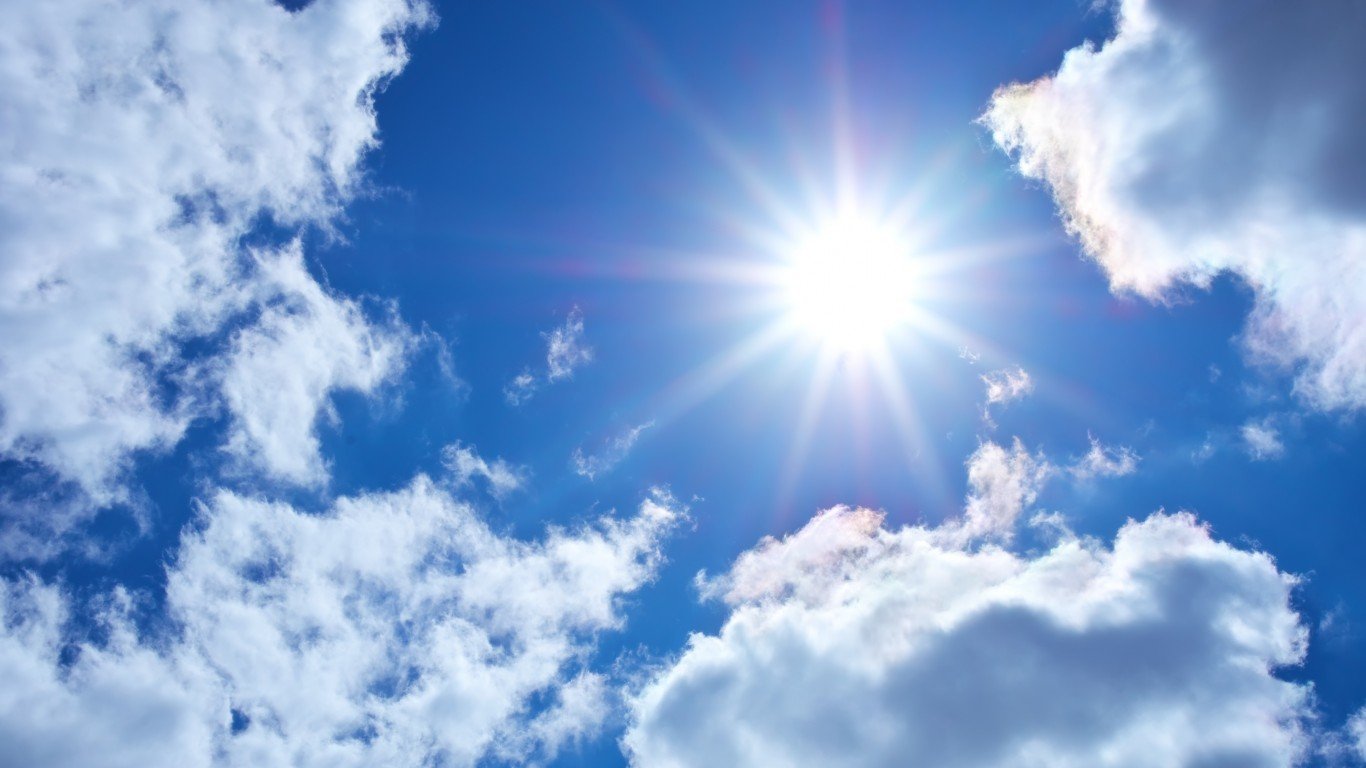
1. Provides sun protection
Facial hair provides protection from ultraviolet radiation, according to a study published by Oxford University. It reflects and absorbs ultraviolet rays, Fenton said. The beard is basically a layer that covers the skin. As all layers do, it stops the sun’s harmful rays from reaching the dermis. (Think no more sunburn.)
How much protection you get will depend on how thick and dark your beard is, Fenton added. For the most part, the longer the hair, the better the protection. “However, hair, whether on the scalp or beard, does not completely block out all rays,” Suggs said. “It is important to use good sun protection (e.g. wide-brimmed hats, sunscreen) even if you have a beard.”
[in-text-ad]

2. Helps prevent allergy-induced asthma attacks
Much like a filter, the bigger and bushier the beard is, the more asthma triggers such as dust it stops from reaching your respiratory system. (Some people may have more than one trigger. Asthma can be triggered by exercise, infections, cold air, or even stress.) Smaller beards that cover little of the face will not be as effective. However, none of this will matter if you don’t clean the beard. Beard hair may prevent environmental allergens from reaching the skin, Suggs said. “However, allergens, such as pollen, may accumulate in coarse beard hair, thus potentially prolonging exposure,” she added.

3. Decreases facial bacteria
An experiment involving 408 hospital workers, with and without beards, showed that certain bacterial species were more prevalent in those without facial hair. The beardless men were found to be three times more likely to harbor species known as methicillin-resistant coagulase-negative staphylococci, or MR-CoNS, a bacteria that has been found to be multidrug resistant. The study was published in the Journal of Hospital Infection.

4. Serves as a filter
Just like hair in the nose, hair on the skin can prevent irritants and allergens from reaching the skin, Fenton said. “But it can also trap things in there, too, so it’s important to wash your face twice a day to get everything out,” he added.
[in-text-ad-2]

5. Keeps you warm
Studies have shown that the skin under a beard can be kept warmer than a clean-shaved face, Fenton said. “When you get cold, the body even adjusts the hairs, causing them to stand up and trap the heat close to the skin.” The beard not only helps to hold body heat in, but it can protect against the windchill factor, he added.
“One caveat is that ice and snow can accumulate in beard hair which may negate some of the shielding effects,” Suggs noted.

6. Ladies prefer beards
Gentlemen prefer blondes, and ladies like gentlemen with beards. More specifically, research shows women find heavy stubble most attractive, followed by full beards, then light stubble. Clean‐shaven faces were least attractive of all. More than 8,500 women over the age of 18, who are romantically interested in men, took part in the study.
[in-text-ad]
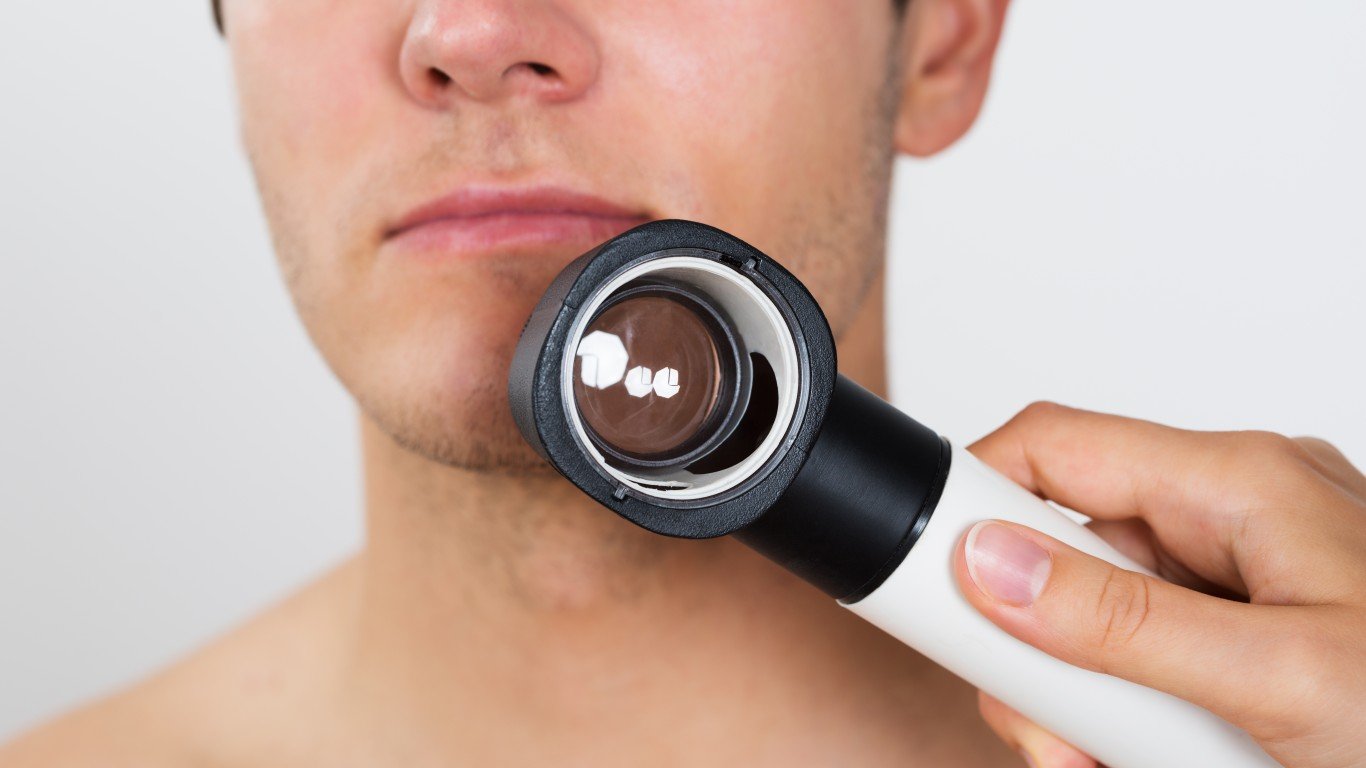
7. Lowers risk of skin cancer
UV rays have been known to cause cancer by damaging the skin’s cells and DNA. Anything that reduces the amount of UV exposure that your skin gets will reduce your risk of skin cancer, Fenton said.
But facial hair does not completely block out all rays and it is possible to get skin cancer under the beard, she added. “In fact, skin cancers can sometimes be hidden under the beard hair which can delay diagnosis.” Make sure you see a dermatologist if you notice any bumps or sores under the beard that don’t heal.
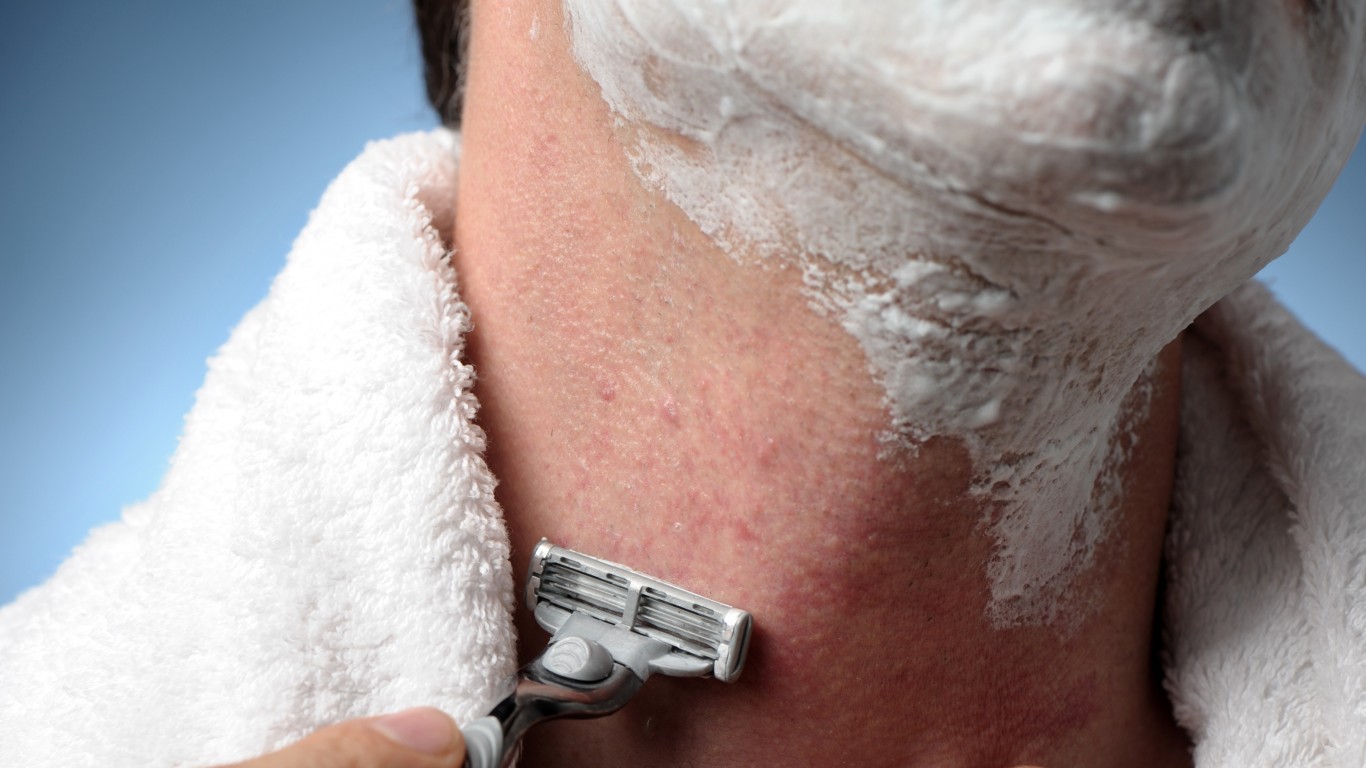
8. Decreases breakouts and shaving bumps
Some of the benefits of having a beard derive from not having to shave. Ingrown hairs and folliculitis (inflamed hair follicles) are much more common in people who shave, so those with beards are less likely to have these problems, Fenton said. The raised spots that look like acne in the beard area, known as razor bumps, or folliculitis, are easily cut by a razor when shaving, causing bleeding and the spread of infection. An antibiotic may be prescribed in more severe cases. The thick, coarse texture of most beard hair can still contribute to the development of ingrown hairs and folliculitis, Suggs said, unless you take care of it.
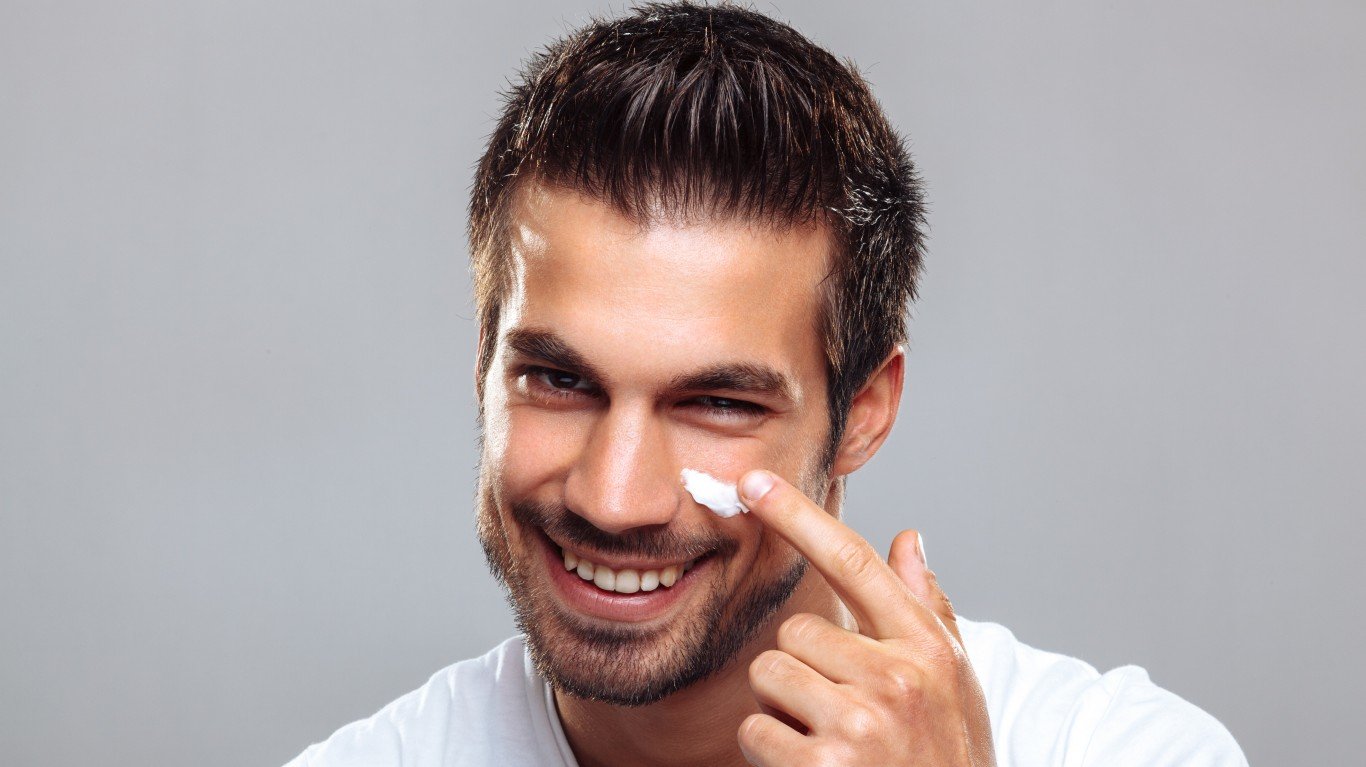
9. Retains skin’s moisture
The beard does help protect the face from the cold air and wind, but it’s not perfect, Fenton said. You still have to moisturize, but maybe not as often because “the beard helps to trap the oil in, and shaving strips the oil off.” Avoid thick creams. Conditioners and beard oils will be easier to apply to the beard and skin than more traditional skin creams, Fenton added.
[in-text-ad-2]
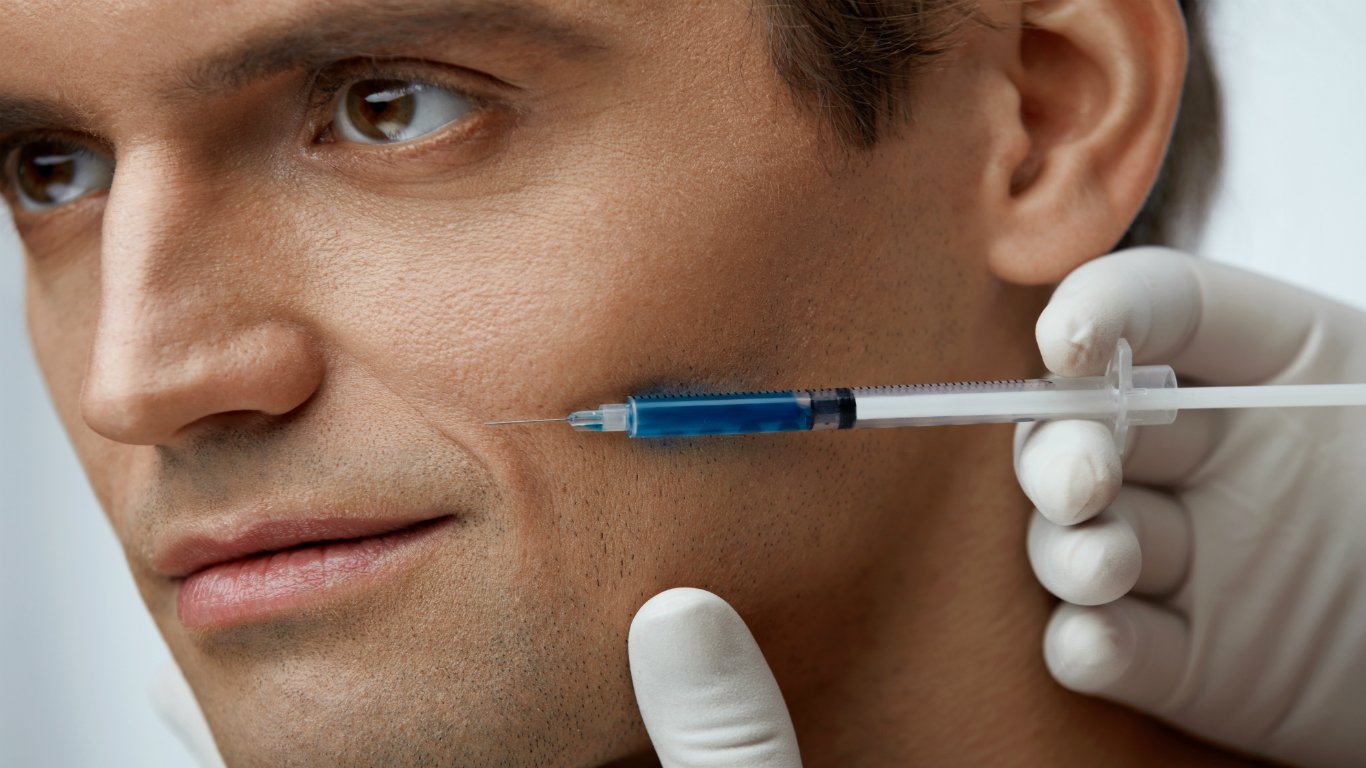
10. Slows photoaging
Sun exposure is the biggest factor in premature aging, the most visible signs of which are wrinkles and age spots. Thus, a heavy beard can protect the skin, slowing down the unpleasant process. But the level of protection depends on the beard’s size and thickness, as well as the angle of the sun, according to a study.
Essential Tips for Investing: Sponsored
A financial advisor can help you understand the advantages and disadvantages of investment properties. Finding a qualified financial advisor doesn’t have to be hard. SmartAsset’s free tool matches you with up to three financial advisors who serve your area, and you can interview your advisor matches at no cost to decide which one is right for you. If you’re ready to find an advisor who can help you achieve your financial goals, get started now.
Investing in real estate can diversify your portfolio. But expanding your horizons may add additional costs. If you’re an investor looking to minimize expenses, consider checking out online brokerages. They often offer low investment fees, helping you maximize your profit.
 24/7 Wall St.
24/7 Wall St. 24/7 Wall St.
24/7 Wall St.